Making it easier for shoppers to find the right products at your eCommerce store is a tried and tested way to increase sales.
One effective method to do this is to create a quiz that asks shoppers a few targeted questions before presenting them with a personalized selection of recommended products.
These quizzes act like virtual in-store sales assistants, helping shoppers to find the products that meet their needs, style requirements, or personal preferences.
If you like the sound of adding a product quiz or product recommender to your store, this article showcases real-life examples from a variety of online stores.
Some implementations are more effective than others, but by checking out these examples, you’ll get a good idea of how to create product quizzes that will increase customer satisfaction and increase sales at your store.
We’ll finish with an introduction to a popular tool for creating product quizzes for Shopify and WooCommerce stores.
About eCommerce Product Quizzes and Recommenders
As you’ll see from the examples below, eCommerce product quizzes work particularly well for stores that sell clothing, beauty, supplement, and skincare products. They’re also ideal for stores selling gifts as they help shoppers find the items that their friends and family will love.
Product quizzes don’t work well for all stores, though.
For stores selling purely functional items, such as basic office supplies, or where there’s little variety between items, an effective product filter is a better option.
Filters are the better option for stores and products where customers know exactly what they want, don’t need help deciding, and a quiz would slow them down and add unnecessary friction to the shopping process.
However, for other types of stores, a product quiz or recommender is definitely worth considering.
Quizzes can also be beneficial as they give you a way to find out more about your audience. Their answers can help you better understand them and identify the products they’re looking for or the needs they have.
12 Examples of Product Quizzes and Recommenders
Here you’ll find examples of eCommerce stores using product quizzes.
They’ve all been implemented in slightly different ways, with different goals, outcomes, and requirements.
Some work better than others, but each one should give you some inspiration for how you could implement this feature at your eCommerce store.
Atoms – Shoe Selector Quiz
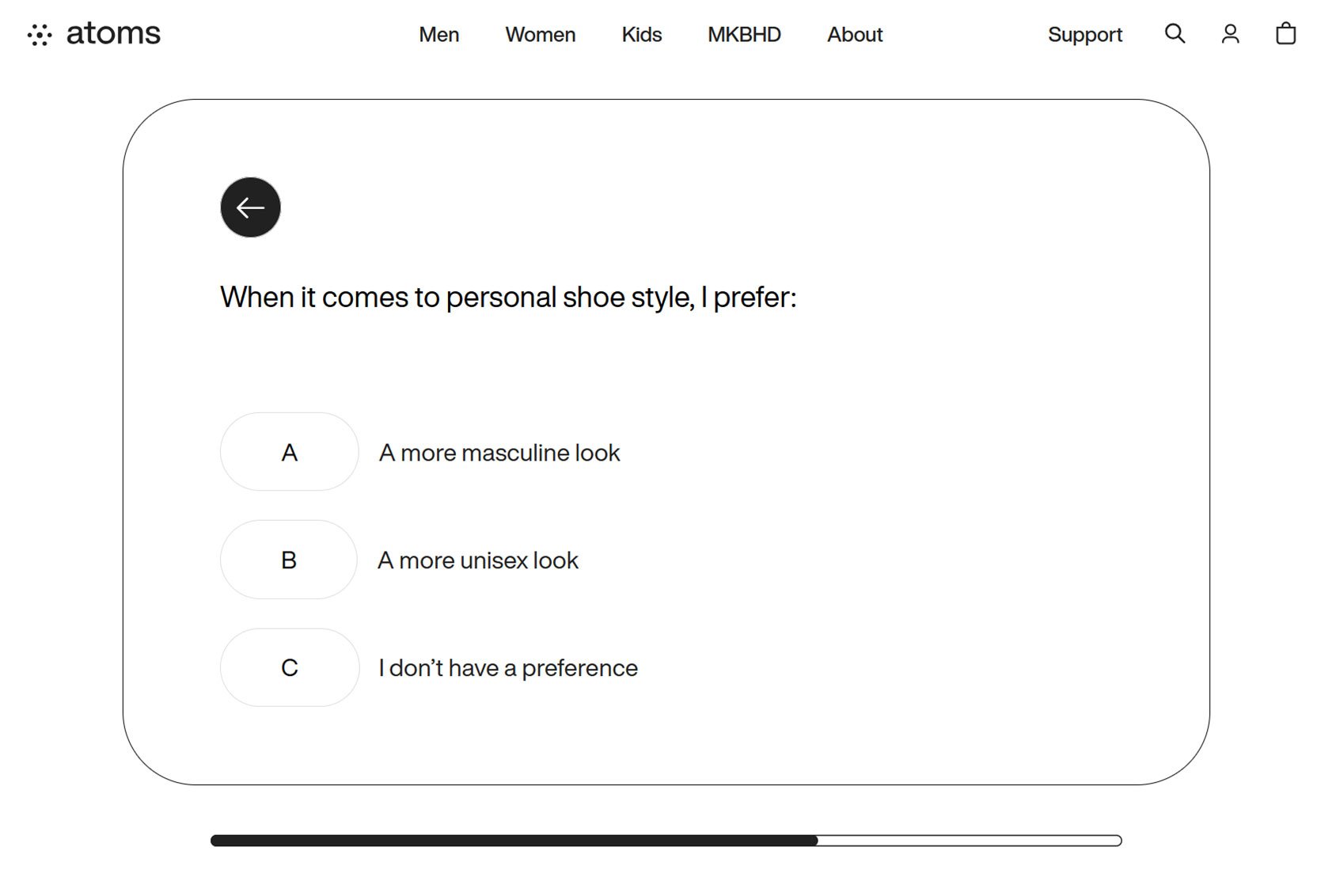
If you have multiple products and it’s not clear exactly how they differ, then a product quiz will be an excellent addition to your store.
When used this way, a quiz can cut through confusion and guide customers to the perfect product.
The Atoms shoe selector quiz keeps it short and simple, asking only a handful of questions. There’s a status bar to help shoppers track their progress through the quiz. Without a status bar, they’re more likely to abandon the quiz before getting to the end.
If you have a large inventory, then implementing a quiz in a similar way to Atoms can help
Huel – Product Recommendation Quiz
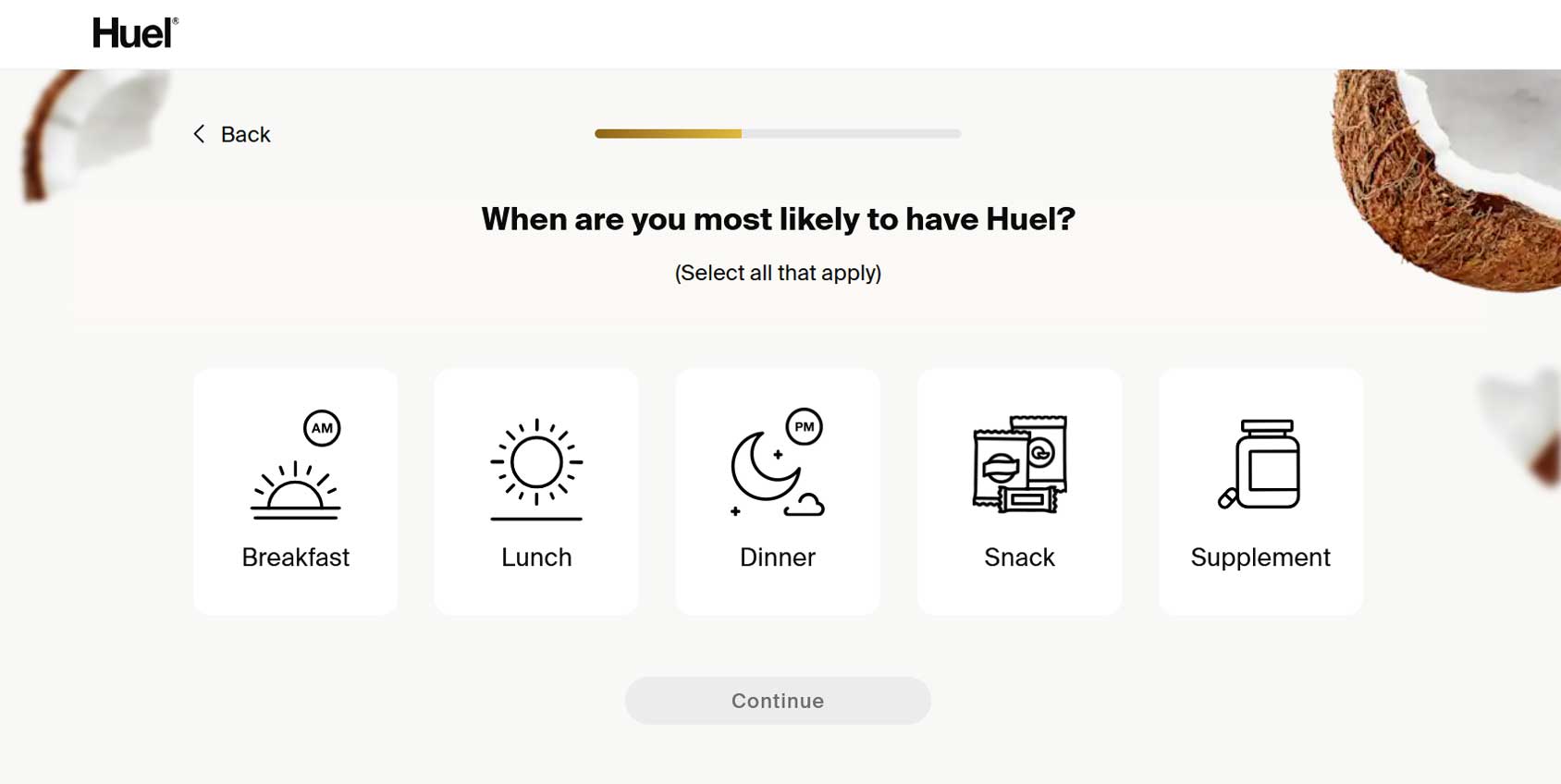
Huel has a wide range of products in several different categories. Furthermore, as some of their products appear to be very similar, their store is well-suited to using a product recommendation quiz.
Huel requests an email address for marketing purposes before displaying the results. However, this is optional, and shoppers can easily skip ahead to see the recommendations without opting in.
If you have a potentially confusing array of products, then adding a recommendation quiz will help customers make a decision and prevent them from walking away empty-handed.
Kester Black – Unique Product Recommendations
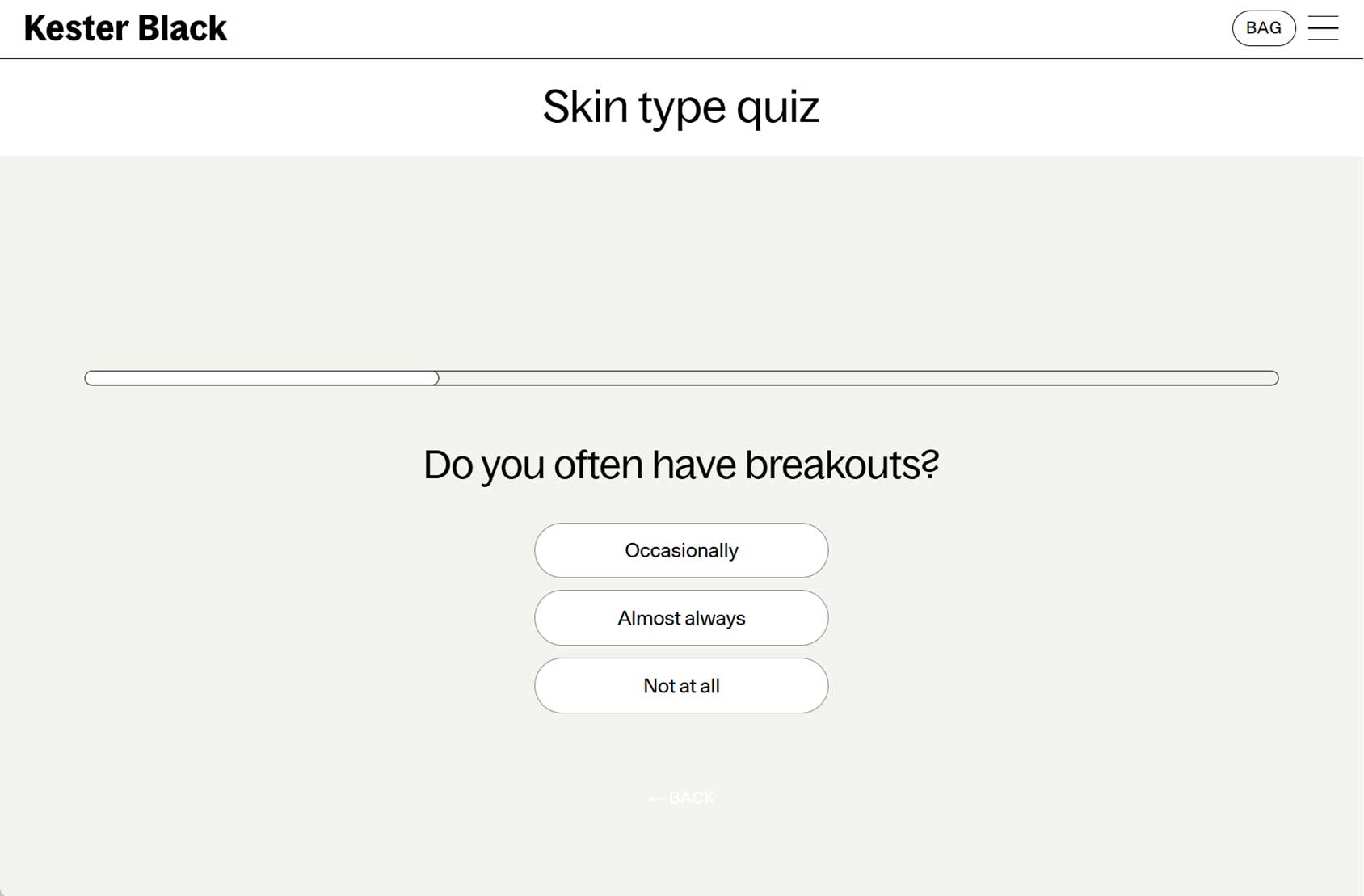
The Kester Black store offers multiple quizzes that cover a range of their products.
The quizzes follow best practice by keeping the number of questions to a minimum and making email newsletter subscription optional.
The progress bar also makes it easy for visitors to see how many more questions they’ll have to answer. This is a vital UX element to add if you want to keep quiz abandonment rates low.
Thesis – Product Customization Quiz
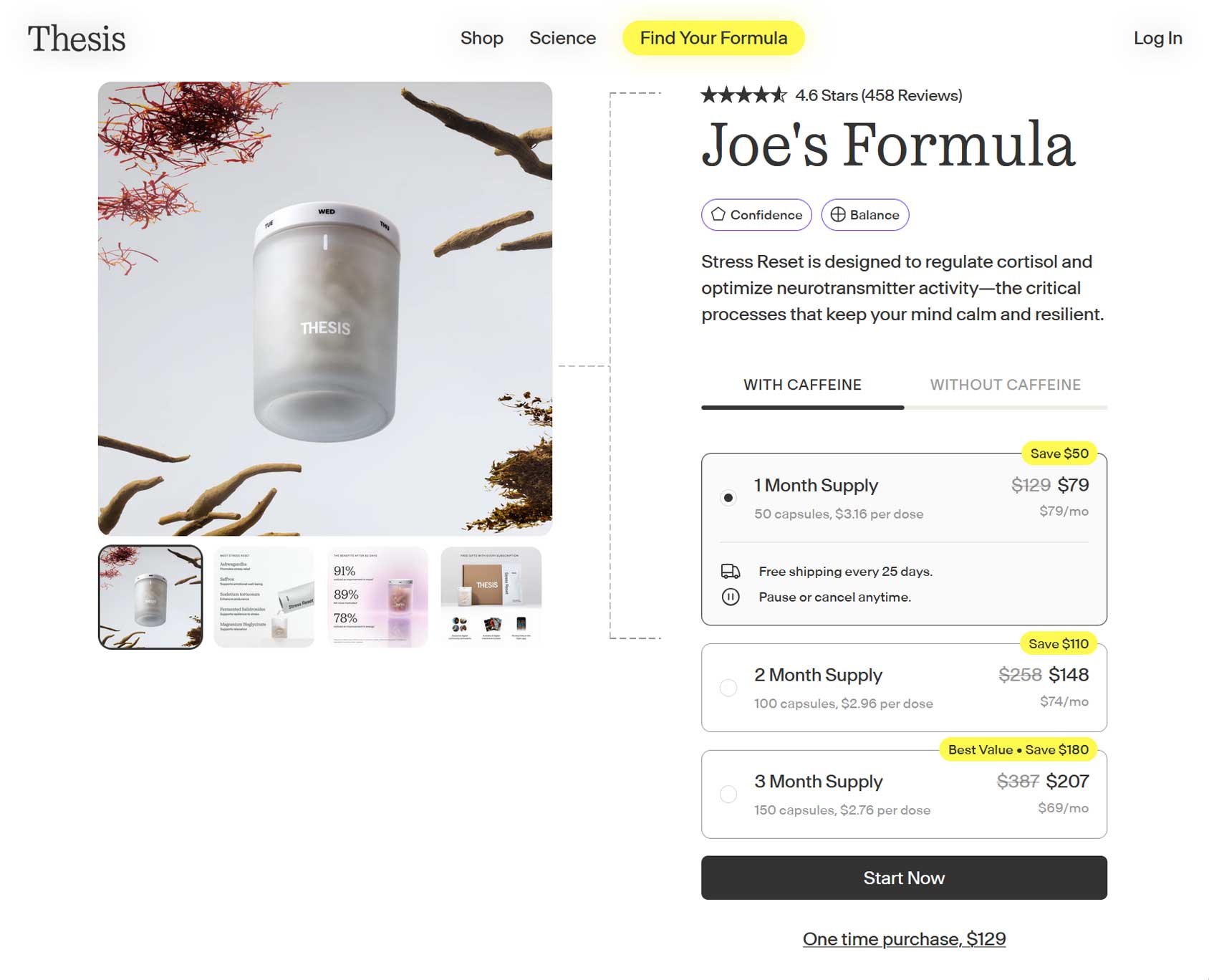
Thesis stands out from most of the other examples by adding trust signals and social proof to the quiz page.
On arriving at the quiz page, visitors are informed that it’s “powered by 5,000+ research hours from top institutions”. This should give them the confidence that the recommendations will be accurate. Information is also provided, explaining why each question is being asked, further demonstrating that the quiz recommendations will be reliable.
To add extra social proof, data from their customers endorsing the quality of the recommendations is also shown.
One downside of the Thesis approach is that, after a relatively long quiz, users must sign up for email marketing content to access the results.
Once the quiz is complete, visitors receive a custom product recommendation that appears to be very personalized. This makes it feel like the product was designed just for the customer.
While this approach won’t work for all stores, if you do offer bespoke products, then a quiz will enable you to create a personalized shopping experience for your customers.
Top of the Mornin’ – Product Filter Quiz
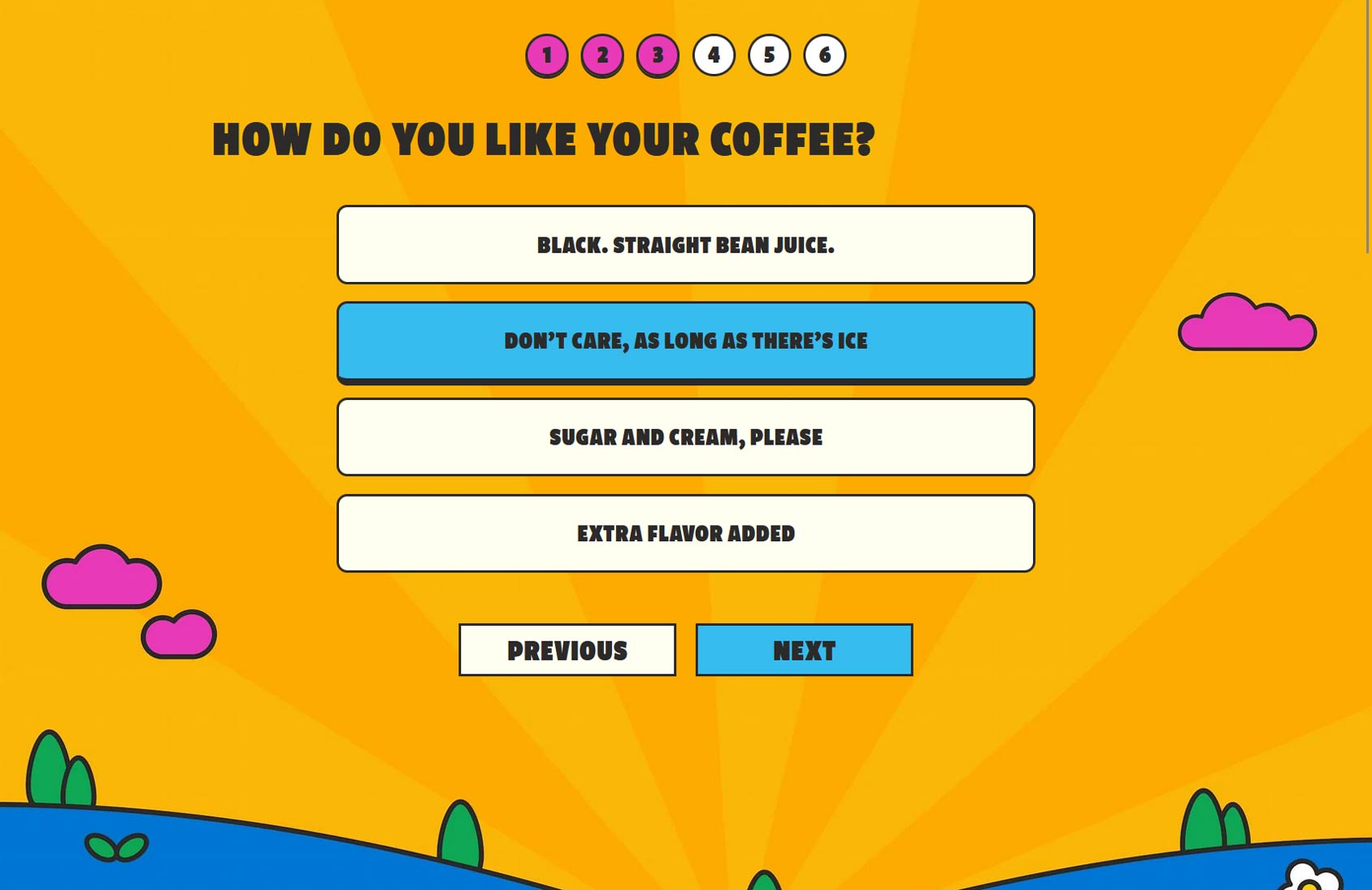
The Top of the Mornin’ quiz helps customers find the perfect coffee. The questions are straightforward and easy to answer. This is something you should aim for if you want to achieve high completion rates.
The progress indicator does a good job of letting customers know how many questions are remaining.
Customers can opt in to receiving marketing communications and get a 10% discount on their order. However, to remove friction, opting in isn’t required.
Branch – Product Bundle Quiz
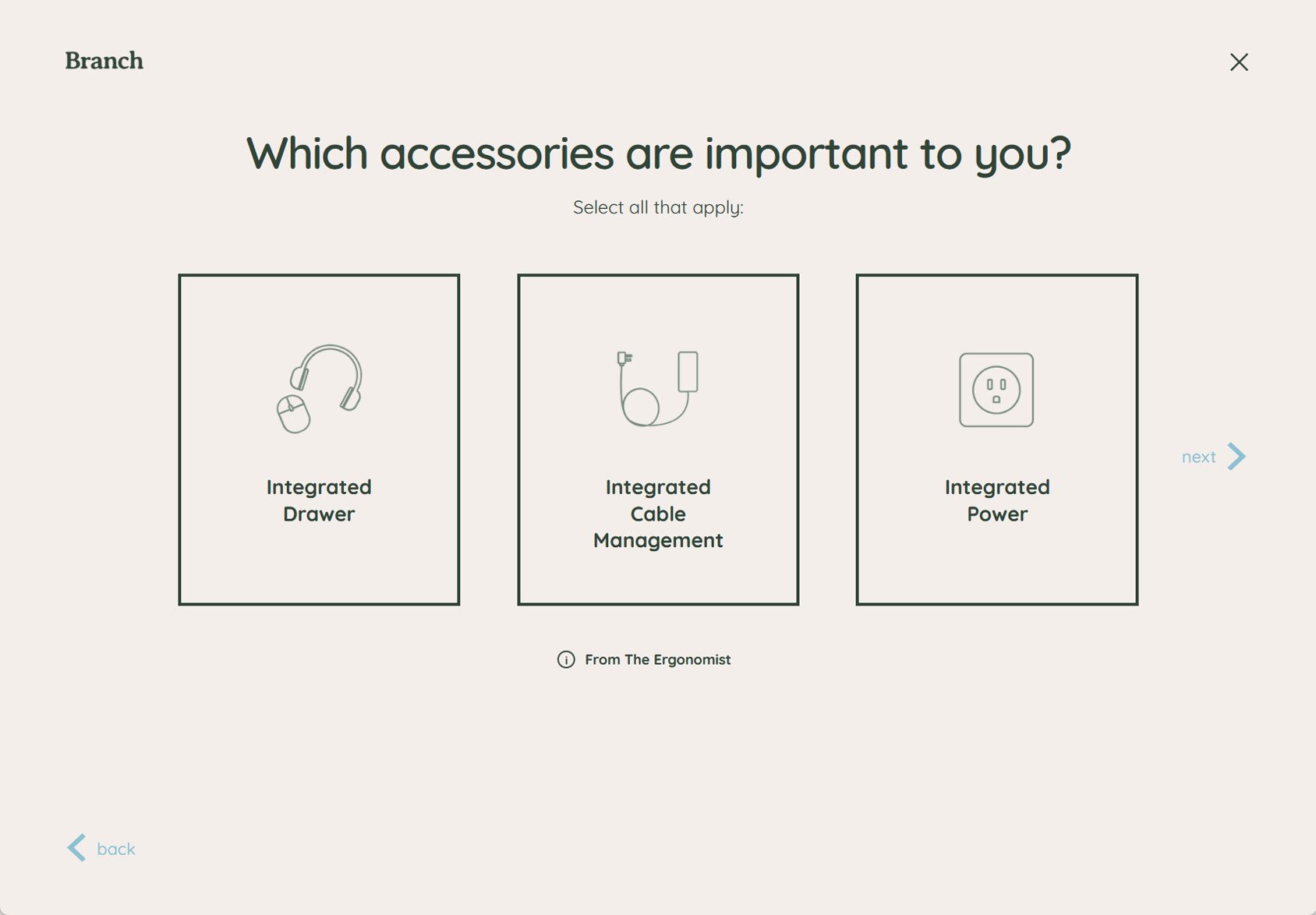
If you sell multiple products that work well together, such as office furniture, then adding a quiz can help customers narrow down their options and reduce the overwhelm that often leads to higher bounce rates and abandoned visits.
Overall, the Branch store quiz is well-designed and easy to use. However, the lack of a progress indicator combined with the higher-than-average number of questions could turn away some shoppers. Plus, they could also be turning away potential customers by requiring an email address and agreement to receive marketing content to see the results.
A nice aspect of the Branch quiz is that the recommended items are automatically added to the shopping cart, making it easier for customers to buy those products.
Clare – Color Picker Quiz
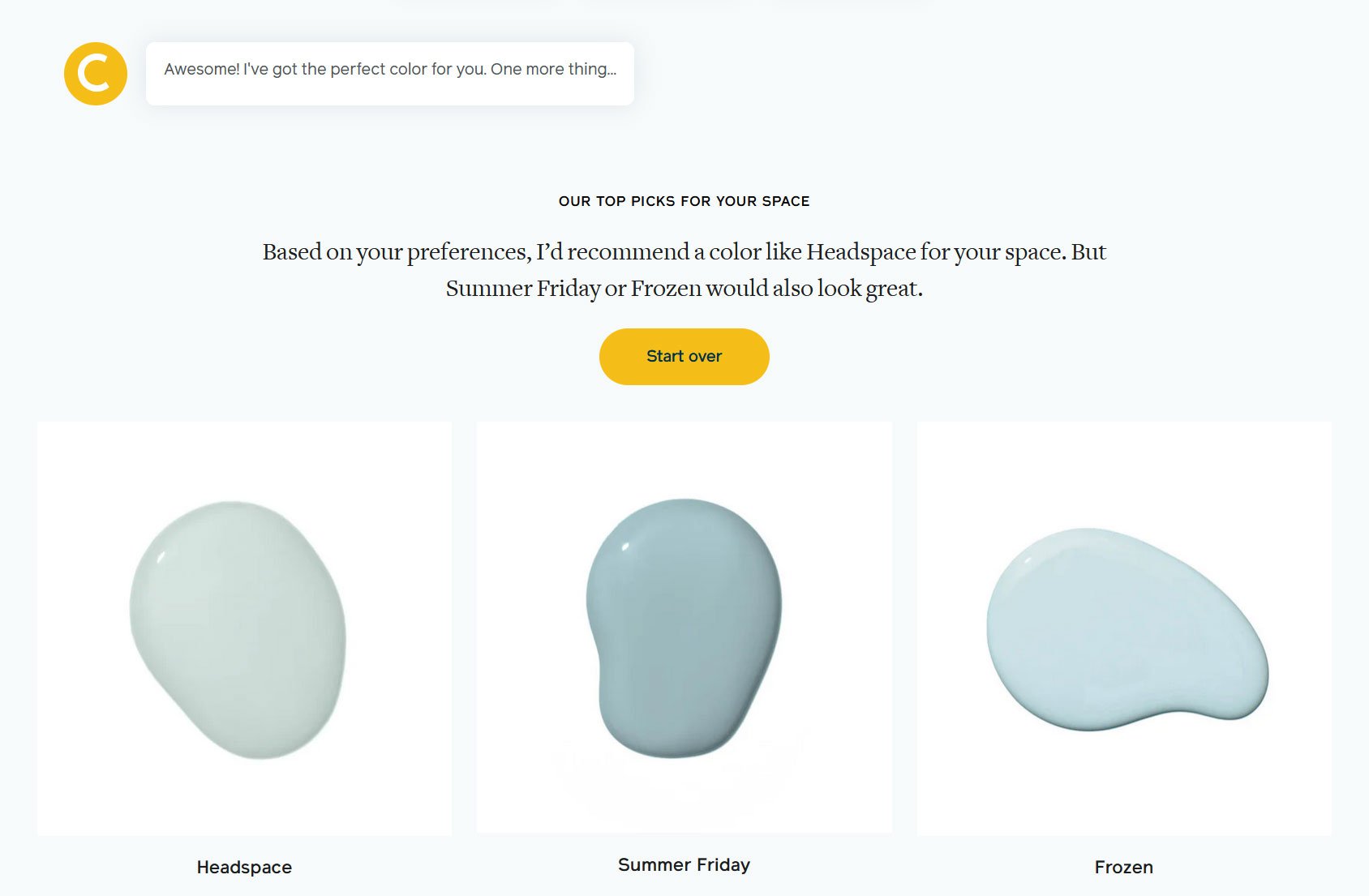
Clare anthropomorphizes their quiz in an attempt to make it feel like customers are liaising with their very own personal interior decorator rather than an online form.
The questions are easy to answer, and the format makes going back and revising answers very straightforward. At the end, one color is recommended along with two alternatives that also match the responses.
This approach works well. It presents one option as the clear winner to reduce the risk of customers being overwhelmed by too many options. However, backup options are still provided just in case the first one doesn’t land.
Spoke – Fit Helper Quiz
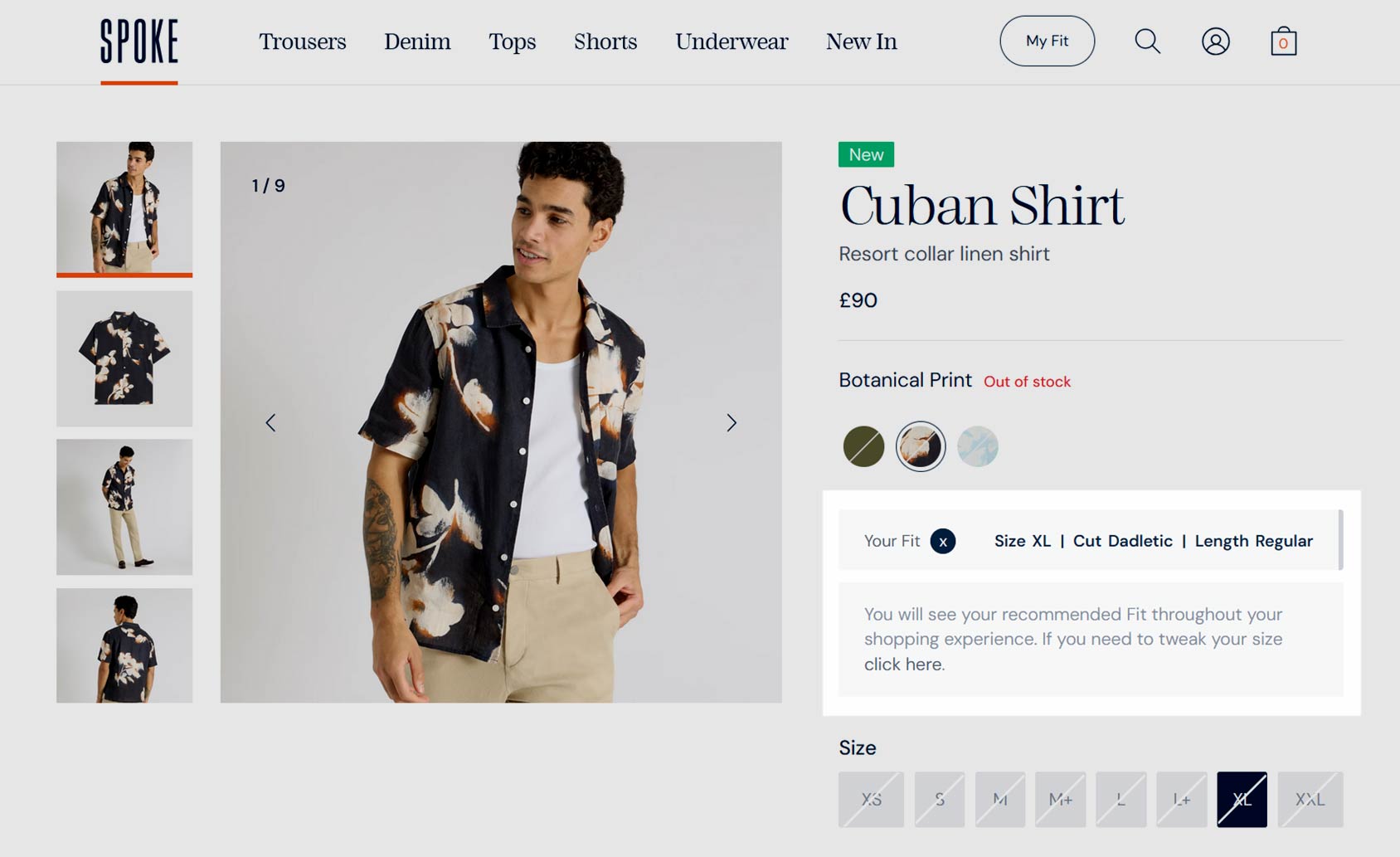
Spoke uses its quiz to help shoppers find the perfect fit for their clothes. While customers must enter an email address and join the marketing list to access the results, the quiz does a good job of creating a sense of investment in the process.
Instead of ending with product recommendations, the quiz results are displayed on each product page at the store. This approach makes it easy for customers to choose the right option when selecting a product, helping to reduce size-related returns.
The quiz works well and is useful. However, not recommending matching products at the end feels like a missed opportunity to help the user find suitable items.
Supergoop – Product Selector Quiz
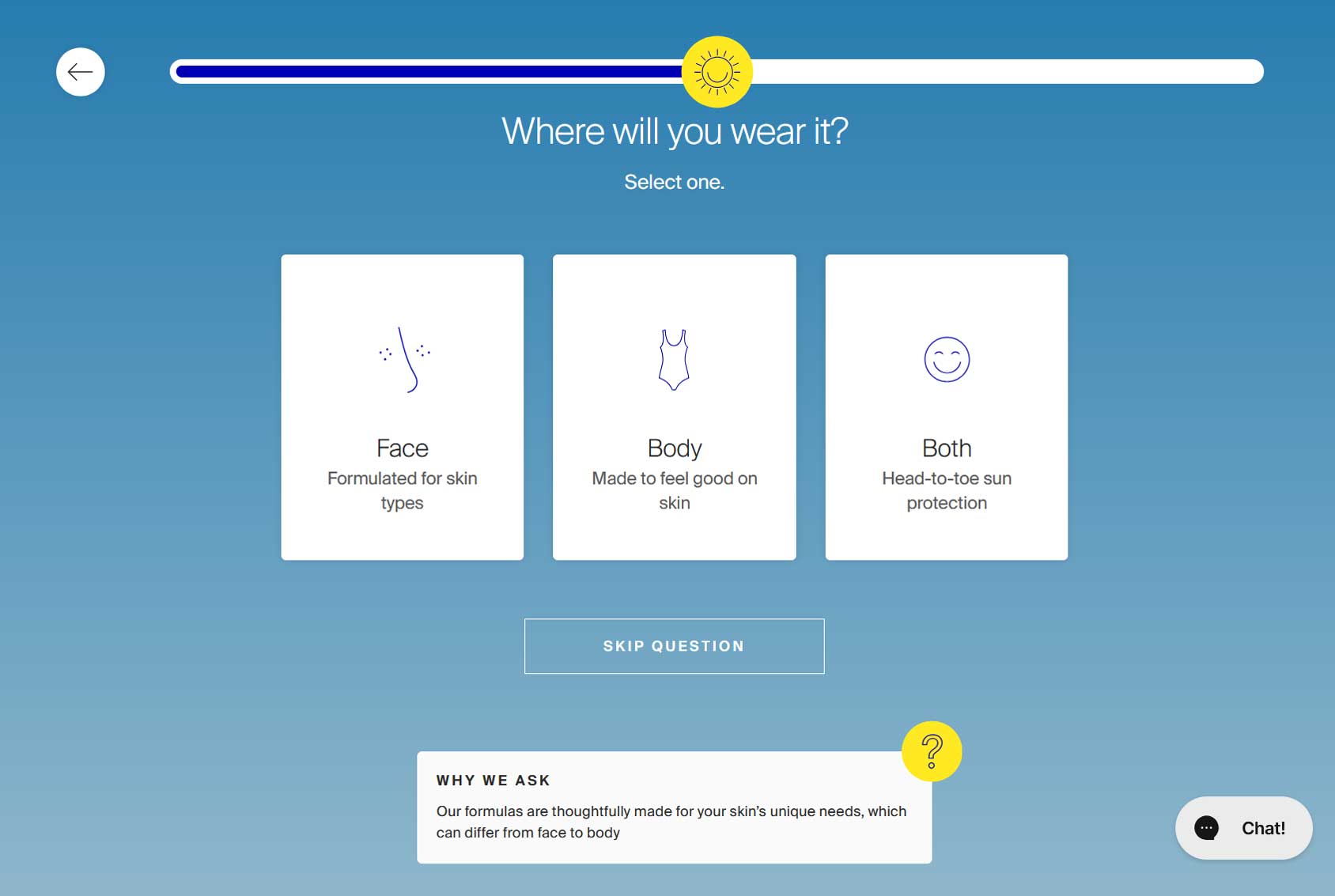
Supergoop has a quick and simple quiz to help customers find the right sunscreen for their needs and preferences. The status bar and the ability to skip questions ensure this format will be popular with customers in a rush or who aren’t fully invested in the idea of the product recommendation quiz but would still like personal recommendations.
Another nice feature of the Supergoop quiz is that it explains why they’re asking particular questions. This does a good job of conveying the methodology behind the quiz. It also makes the results feel more credible rather than seeming like random product suggestions. Quotes from relevant experts are displayed to provide more context for the questions.
When the results are presented, details from the customer’s answers are also displayed to explain why the particular product was recommended.
Bubble Skincare – Product Recommendation Quiz
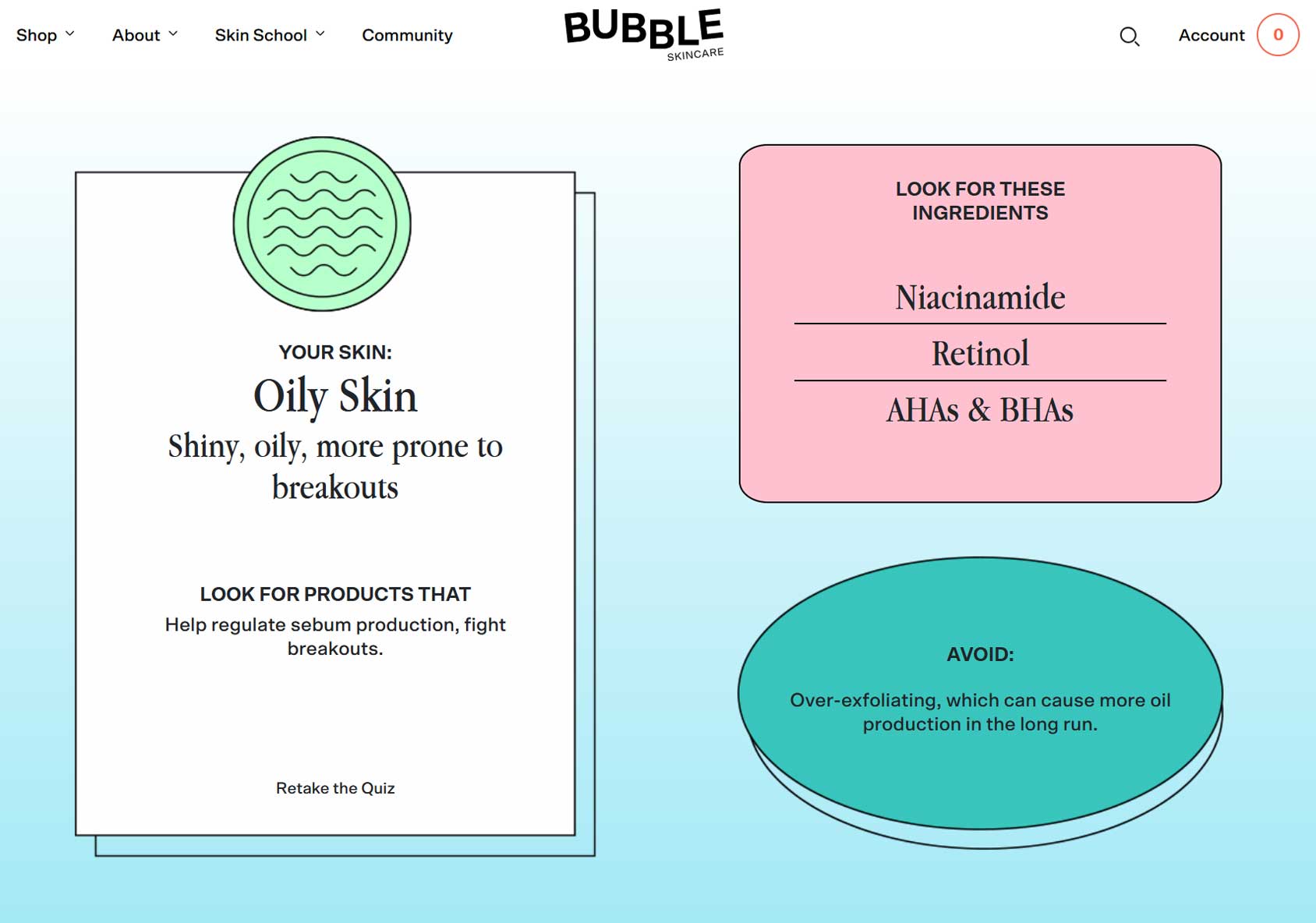
The Bubble Skincare product recommender helps customers find the right type of product for their skin type.
After completing an exercise and answering a few questions, customers receive advice on what to look for in order to find products that are well-suited to their skin type, as well as things to avoid.
However, Bubble Skincare misses an opportunity to present compatible products to its customers at the end of the quiz. Although guidance on finding the right product is provided, no actual products are listed.
This seems like an oversight, and if you do implement a product quiz, make sure you do list some compatible products. Customers who complete your quiz are already engaged, so don’t make it hard for them to find what they’re looking for.
A Kids Co – Gift Finder Quiz
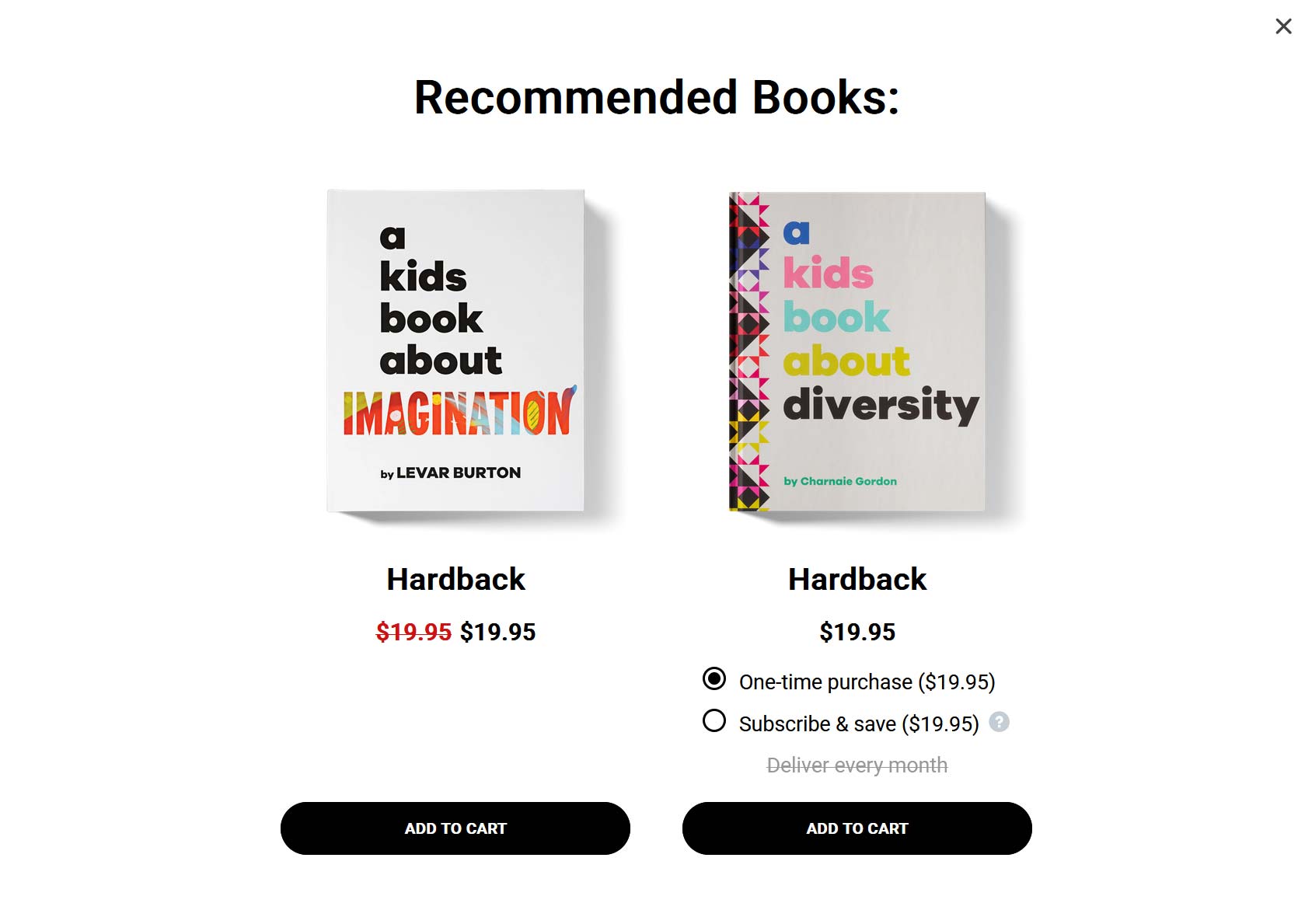
If you’re selling products that customers might be buying as a gift, then adding a product recommendation quiz is highly recommended.
Buying for others can be difficult, so if you can make it easier for customers to find the right item, they’ll be more likely to make a purchase.
To implement this type of product quiz successfully, A Kids Co asks a few key questions about the gift recipient. At the end, a small selection of products is recommended.
By narrowing the options and removing some of the guesswork, shoppers are able to buy gifts with confidence.
Death Wish Coffee – Product Recommendation Quiz
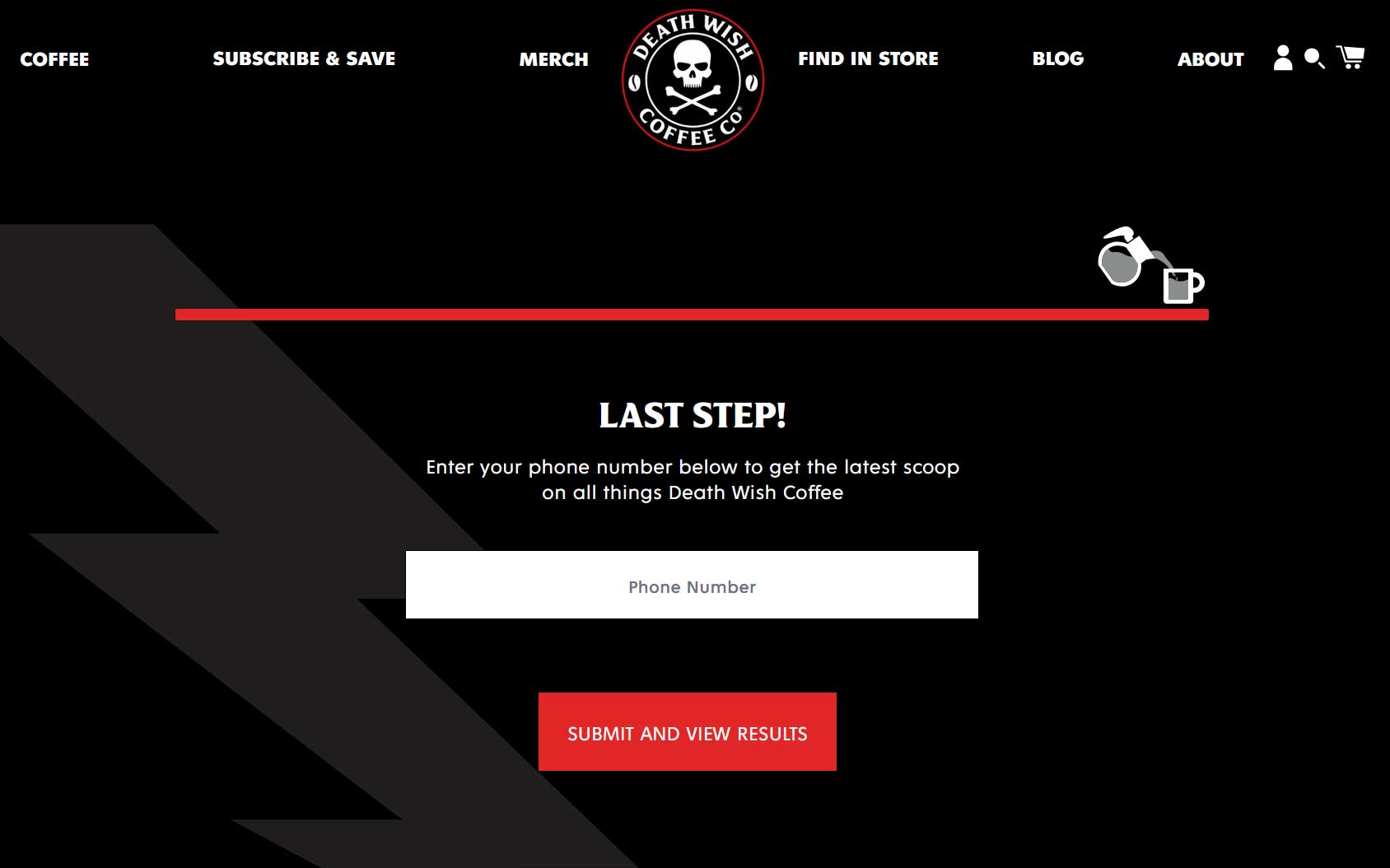
The Death Wish Coffee quiz helps customers narrow down the inventory to items that are most suited to their taste. This works well, especially with something like coffee that comes in many varieties that appear to be similar.
While asking for an email during the quiz is a smart move, making it mandatory adds some unnecessary friction. Death Wish Coffee goes a step further than most by asking for a phone number and making it a requirement for accessing the results.
If you really desire potential customers’ phone numbers, then pairing the request form with a quiz can help with collection. However, it’s also likely to deter many quiz users who are unwilling to share their phone number for product recommendations.
If you must take this approach, be sure to monitor quiz abandonment rates and see what impact this requirement has.
How to Add Product Quizzes to Your eCommerce Store
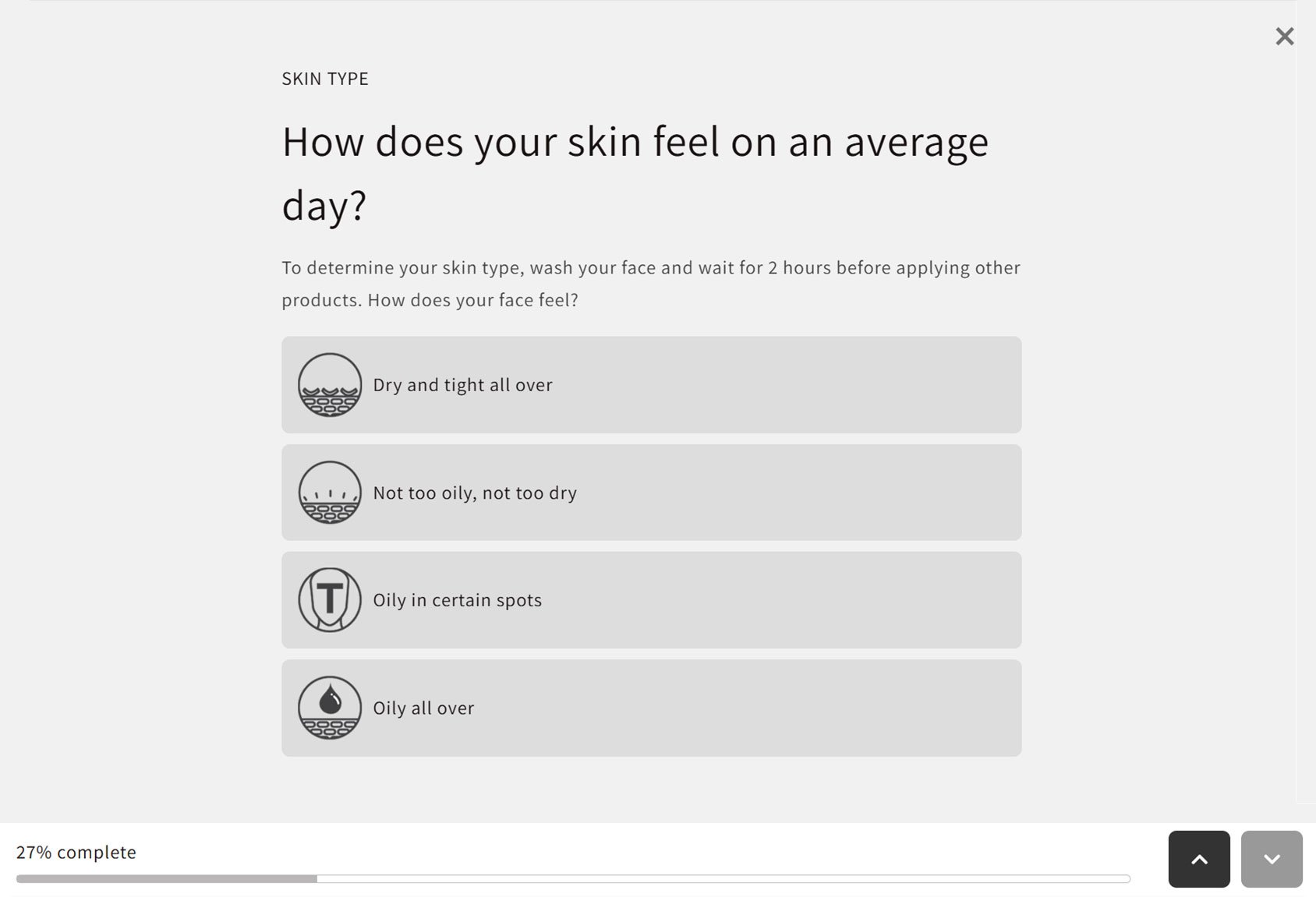
RevenueHunt is a popular option for adding interactive product quizzes to eCommerce stores.
It’s available for Shopify and WooCommerce, allowing you to provide your shoppers with the assistance they’re accustomed to from visiting physical stores.
The quizzes are easy to create and should help you boost sales at your store.
Ready to Add Product Quizzes to Your eCommerce Store?
When it comes to adding product quizzes to your eCommerce store, think about whether you want to ask for an email address for marketing purposes, and if so, if it needs to be a requirement.
One alternative to asking for an email during the quiz is to use an exit intent trigger to display a popup optin form.
Keeping the number of questions to a minimum is recommended, as is including a progress indicator that lets customers know how far they’ve come and how long is left.
Explaining why you’re asking each question can increase buy-in from customers. Displaying social proof on your quiz pages, such as stats about how many people who completed the form went on to buy a product or quotes from happy customers, can help increase completion rates and conversions, too.
At the end of the quiz, avoid overwhelming customers by recommending too many products. The main reason they’re taking the quiz is to learn what products are right for them, so make it easy and only display a few suggestions.
Adding a product quiz to your eCommerce store can help customers find the products that are right for them. As this can lead to increased conversions, it is definitely worth experimenting with.

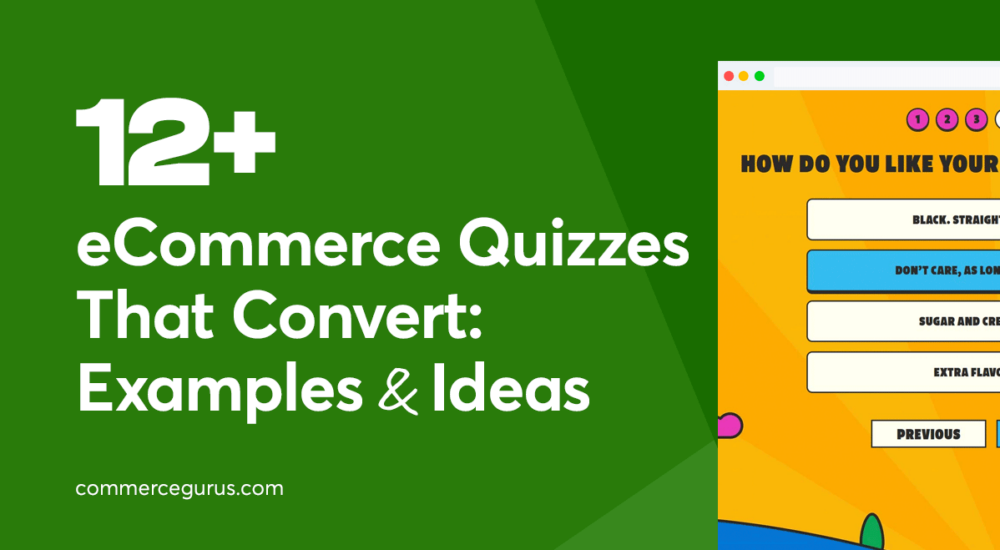
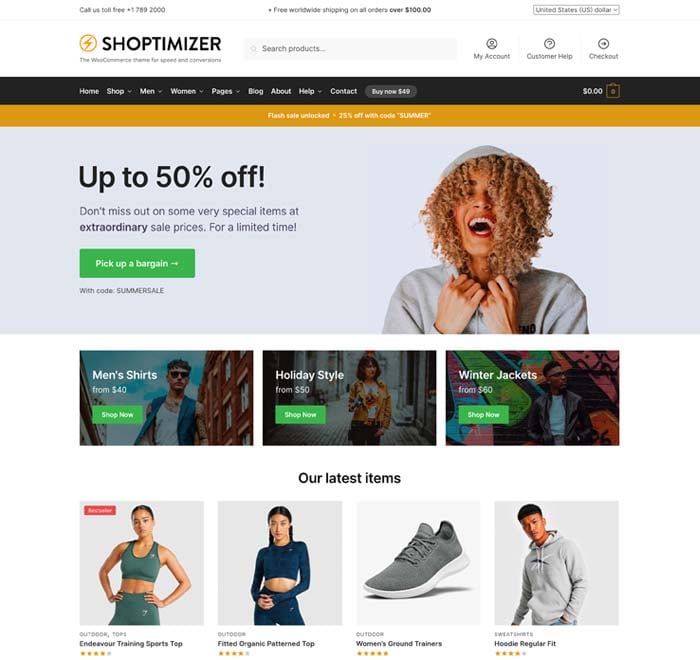
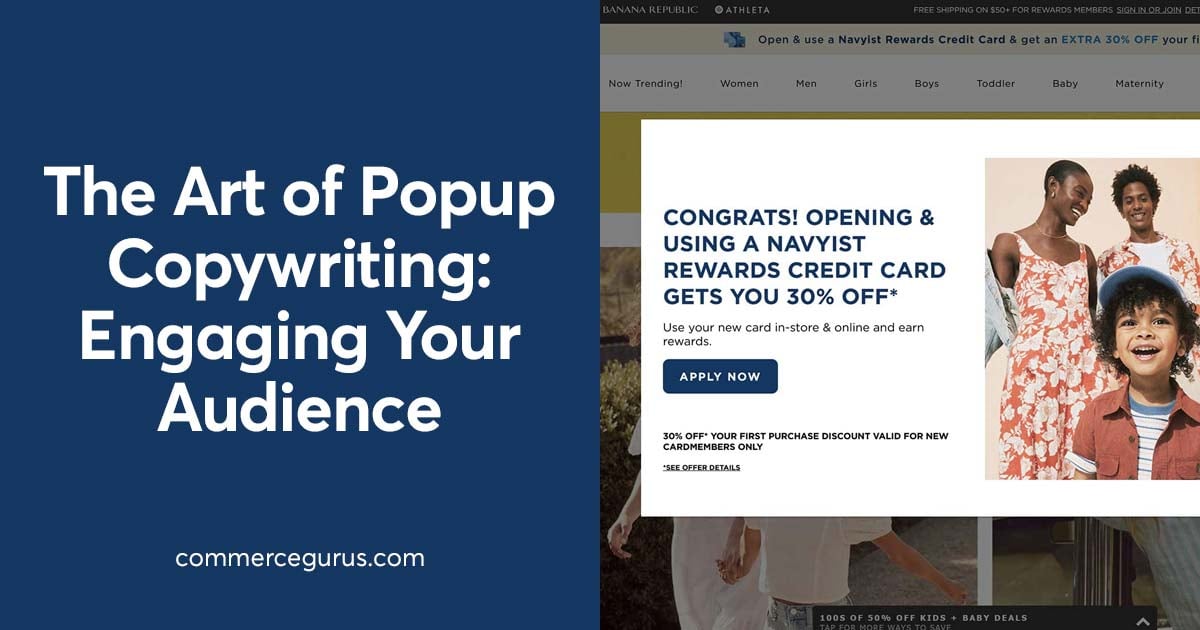
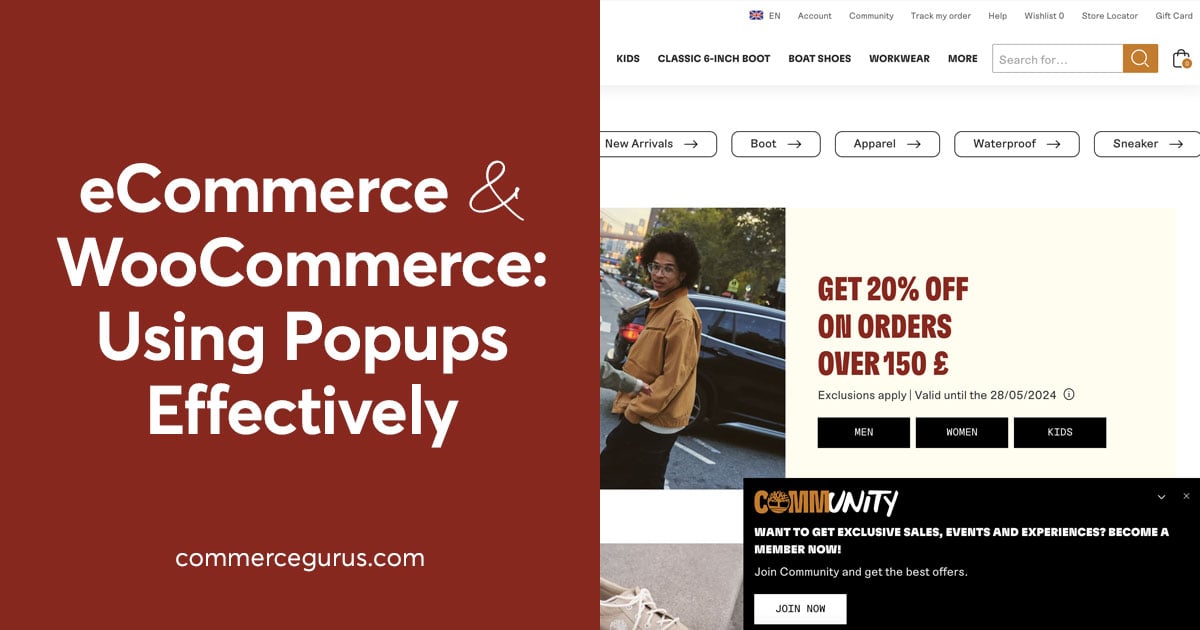
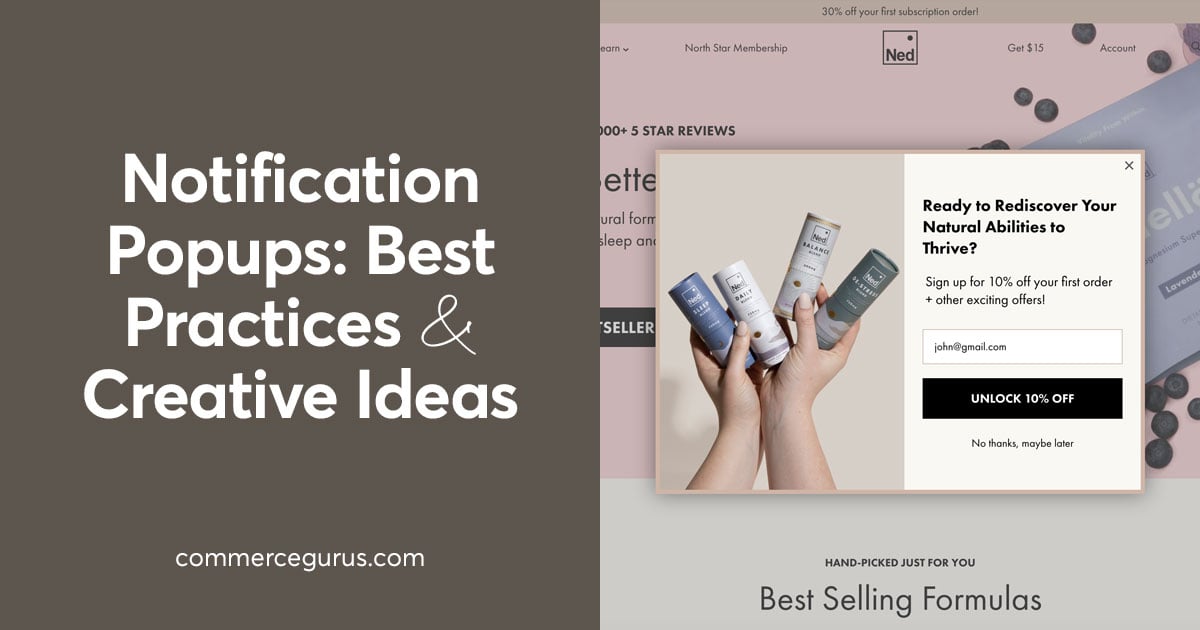
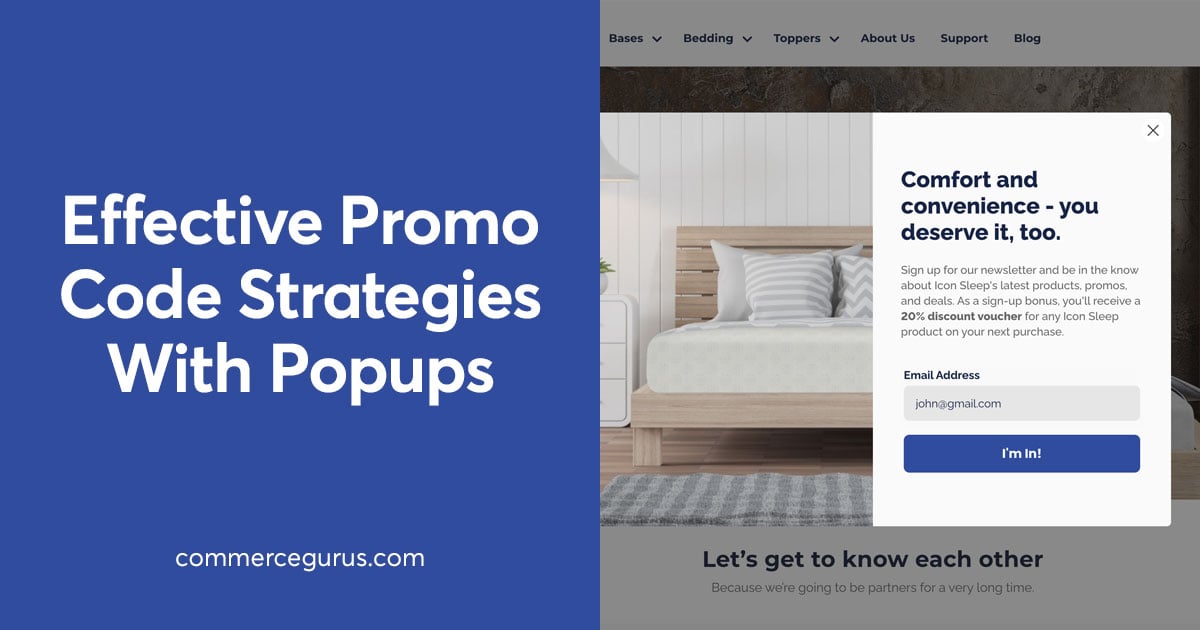
 CommerceGurus heading for WordCamp Europe!
CommerceGurus heading for WordCamp Europe!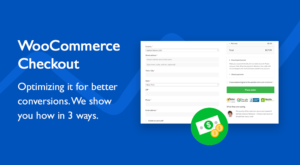 WooCommerce Checkout: Optimizing it for better conversions
WooCommerce Checkout: Optimizing it for better conversions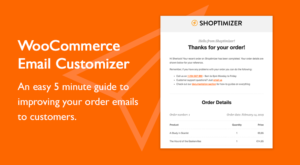 WooCommerce Email Customizer – The Five Minute Guide
WooCommerce Email Customizer – The Five Minute Guide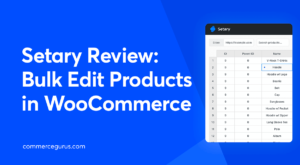 Setary Review: Bulk Edit Products in WooCommerce
Setary Review: Bulk Edit Products in WooCommerce